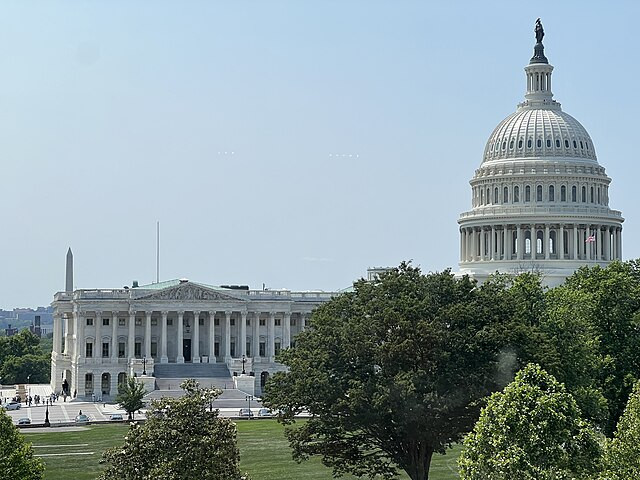The House of Representatives approved a Republican-backed measure on Tuesday that seeks to ban transgender girls and women from participating in school sports teams that align with their gender identity. The vote on the "Protection of Women and Girls in Sports Act" fell largely along party lines, passing 218-206, with two Texas Democrats, Reps. Henry Cuellar and Vicente Gonzalez, joining all Republicans in favor. One Democrat, Rep. Don Davis of North Carolina, voted "present."
The bill, which amends Title IX to define sex as determined "solely on a person's reproductive biology and genetics at birth," has reignited contentious debates over gender identity, equity in sports, and the rights of transgender individuals. Under the legislation, schools permitting transgender girls to compete in women's sports could risk losing federal funding.
Republicans emphasized fairness and safety in competitive sports as their primary rationale for advancing the bill. Rep. Greg Steube (R-Fla.), the bill's sponsor, argued it would preserve the intent of Title IX to ensure equal opportunities for women in sports. "All throughout humanity, we have recognized as a species that there are women and there are men, as God created, who are obviously biologically different and, dare I say, scientifically different," Steube said during floor debates.
House Republicans previously passed a similar bill in 2023, but it failed to advance in the then-Democratic-controlled Senate. With the GOP now controlling the Senate, Sen. Tommy Tuberville (R-Ala.) has introduced a companion bill, the Laken Riley Act, signaling the issue will remain a priority for the party.
Critics of the legislation raised concerns over its implications for the privacy and dignity of athletes, as well as potential discriminatory effects. Rep. Suzanne Bonamici (D-Ore.) warned the measure could lead to invasive examinations of female athletes suspected of being transgender. "We're already seeing examples of harassment and questioning of girls who may not conform to stereotypical feminine roles," she said.
The Congressional Equality Caucus, a coalition of LGBTQ-supportive lawmakers, dubbed the legislation the "Child Predator Empowerment Act." The group alleged the bill could subject students to invasive questioning and physical inspections. Rep. Alexandria Ocasio-Cortez (D-N.Y.) echoed these concerns, stating, "This bill doesn't deal with enforcement mechanisms. And when there is no enforcement mechanism, you open the door for every enforcement mechanism."
Supporters countered that enforcement would rely on birth certificates to determine eligibility, dismissing concerns about physical examinations. Rep. Tim Walberg (R-Mich.) emphasized that the bill does not mandate any invasive measures.
More than 400 LGBTQ and civil rights organizations have opposed the legislation, arguing it ostracizes transgender youth and creates an environment of discrimination. "If schools mark some students effectively as outcasts, they foster an environment where no student is included and safe," the groups wrote in a joint statement.
Polling has shown a lack of broad public support for allowing transgender athletes to compete in categories matching their gender identity. Republican lawmakers have capitalized on this sentiment, spending heavily during the 2024 campaign season on advertisements portraying the issue as a threat to fairness in women's sports.
The bill also comes amid broader political tensions surrounding transgender rights. In November, Rep. Sarah McBride (D-Del.) became the first openly transgender person elected to Congress. Shortly after her election, Speaker Mike Johnson (R-La.) implemented a rule barring transgender individuals from using restrooms aligned with their gender identity within the Capitol. McBride criticized the policy but stated, "I'm not here to fight about bathrooms."
As the bill heads to the Senate, its future remains uncertain. Senate Majority Leader John Thune (R-S.D.) has indicated plans to bring it to a vote but has not set a timeline. Meanwhile, debate over the legislation continues to reflect deep political and cultural divides over transgender rights and equality in American society.






